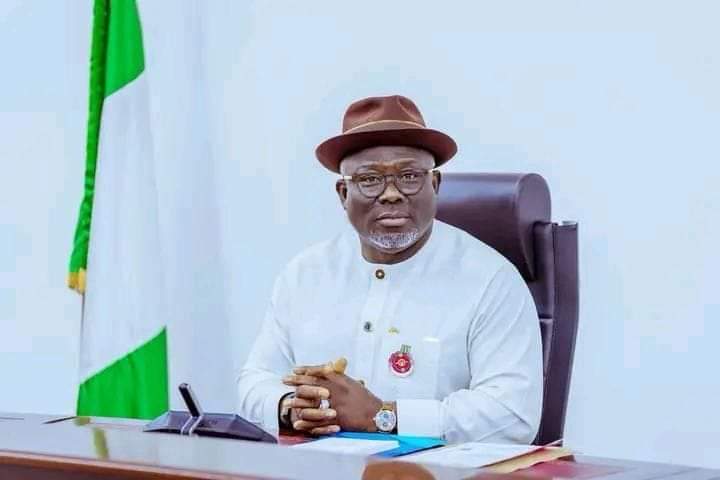The Delta State Hospitals Management Board has disclosed that following the commitment of Governor Sheriff Oborevwori to improve health care delivery, citizens and residents of the state have developed greater confidence in government hospitals, with an increasing number opting to go for treatment in the government facilities.
Chairman of the Board, Dr Paul Oweh, in company with other members and the Permanent Secretary of the board, disclosed this in a press conference on Wednesday at which he gave a run down of the activities of the board in the past 11 months.
According to Dr Oweh, the HMB hospitals render the highest volume of service to Deltans with as much as 60 percent of patients in Delta State treated in the facilities in the year 2023.

This includes an Out-Patient attendance of 679,591, child delivery of 29,433 and Caesarian section of 5,616.
The improvement in the services derives from
the investments and innovations brought to bear on the sector under Governor Oborovweri’s administration which includes a standing approval for the recruitment of replacements for exiting and retiring doctors and nurses, increment of personnel appropriation from N12 billion to N18 billion and re-equipment of the facilities for which the first phase was done under the Governor’s 100 days in office and the second phase being implemented by the recent approval of the sum of N3 billion by the State Executive Council for hospitals equipment to facilitate greater and better services.
On the provision of electricity in the hospitals, he said the situation has greatly improved with a mix of connection to the 33 Line, the installation of Solar Power systems and the use of electricity generators.
“The question of power supply is a national crisis, and to that extent, we are affected. Power supply is so essential to our services but what we have observed is that we are trying and our hospitals are coping well with the situation.
“Some of our facilities, depending on their location, are hooked up to the 33KVA Line. Some have adopted the use of generators at intervals while a good number of our hospitals have resorted to the installation of Solar. What they did is to look at critical sections of the hospital and install Solar. So like our labs, theatre complexes, ante-natal sections, especially in Zonal hospitals, they have 24 hours power supply through Solar. There is hardly any of our hospitals where you do not find Solar power in some sections.
“The use of Solar has been made possible by a number of factors. First, there have been government programmes to install Solar in certain critical units of the hospitals. This has been on during this administration, before our tenure and during our tenure in the board. Secondly, the Medical Directors have been better empowered to use their internally generated revenue for the development of the hospitals. This has been helpful.
“The electricity situation is not where we should be but it is not what it used to be. It has improved such that even if you bring a surgical patient to any of our hospitals at odd hours, the chances are that they can guarantee electricity.”
Dr Oweh also emphasized that the state’s Free Mother and Child Treatment Programme is still operative and advised members of the public who experience contrary attention in the hospitals to promptly report to the authorities.
He however said that there are still a few challenges towards attaining the highest standard of health care services in line with one of the cardinal programmes of the administration which is “to get health care closer to the people and at a cost that does not put holes in their pocket.”
He noted that the objective of ensuring all round effective functioning of equipment and standard conduct and best practices on the part of the hospital staffs is an ongoing pursuit.
“Our duty as the Hospital Management Board is to regulate secondary Health Care Delivery in Delta State.
Recently, the board embarked on a state wide visit to all the Zonal Hospitals on a fact finding mission.
“We needed to know the staff strength, the state of critical equipment in the hospitals, the number of functional equipment, other challenges and more importantly the attitude of workers to members of the public.
“Some infrastructural deficit were observed in some facilities. Sharp and unethical practices by some members of staff were observed and appropriate sanction meted out.
“We observed a huge shortfall of staff in critical areas (as) a good number of our medical health practitioners have, in the words of Nigerians, Japa out of the country while those due for retirement bow out regularly leaving our medical staff with a huge work load.
“Fortunately, the State Government has approved the implementation of replacing doctors and nurses including those who retire from service.
He also expressed appreciation to doctors, nurses and other staff of the hospitals for putting in their best in spite of difficult circumstances in the work place environment.




GIPHY App Key not set. Please check settings